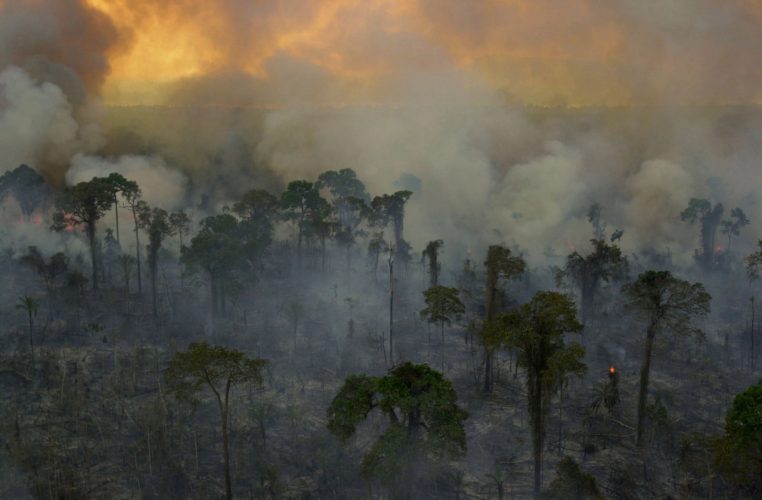The Amazon rainforest is burning, right now. In fact, about 12 football fields worth of rainforest will have burned by the time you’re done reading this article. By 2020, the entire rainforest will be gone if action isn’t taken immediately.
Over 75,000 wildfires are currently burning in Brazil, with around 40,000 of them actively destroying the rainforest, which marks an 80 per cent increase in wildfires since last year. While wildfires may seem like a natural disaster, in the case of the Amazon rainforest, the devastation is human-made as it is being caused by complicated and unjust political and economic circumstances in the region. It’s crucial that students take individual action and encourage their peers to get involved in order to collectively work to combat this issue as, not only do climate issues affect the regions they occur within, but they affect the future of every individual on the planet.
Among the many political leaders who have failed to put the climate at the forefront of their agendas is Brazil’s President Jair Bolsonaro. Under the Bolsonaro’s government, penalties for illegal deforestation have been weakened, allowing individuals to burn down sections of the rainforest with no personal consequences. While Brazilian laws protect Indigenous territories, and such peoples have fought for years to protect the Amazon, the far-right Bolsonaro government has turned a blind eye to illegal logging on Indigenous lands to encourage farming. For this reason, many of Brazil’s Indigenous territories have been seized and burned in order to benefit the farming industry.
For cattle farmers, this lack of regulation is a positive; as the demand for beef continues to rise, having the option to regularly burn down forested land to clear more space for cattle farms serves as a huge advantage. Consequently, over 90 per cent of the land that has been cleared in the Amazon since 1970 has been used to raise livestock for the meat industry. In order to halt this unnecessarily rapid rate of deforestation, McGill students must make a conscious effort to decrease their meat consumption. Though it can be difficult to break habits, it would be much more difficult to live on an inhabitable planet. If we continue to allow the rainforests to burn, there will be no future on this Earth.
The fires that are rapidly destroying the Amazon in Brazil and throughout the region in South America need to be stopped. If this ecosystem is lost, so will be millions of animal and plant species. The Earth will also lose billions of trees that work to reduce pollutants such as carbon dioxide, which will accelerate the rate of climate change. Though environmental issues such as the destruction of the Amazon often feel like distant problems, they happen every day, even here at McGill. Currently, McGill University itself is complicit in the acceleration of climate change as it continues to maintain its holdings in tar sands and fossil fuel companies and remains associated with companies lobbying for the Plan Nord, a Quebec government strategy that plans to exploit natural resources in northern Quebec. McGill students must realize that it is important to take climate action to bring attention to both local and international environmental injustices.
Though the Amazon crisis is a large-scale problem, every individual has the capability to encourage structural political, economic, and social change. The public can condemn politicians who deny the importance of protecting the Amazon and build a community of resistance by spreading the importance of this issue. On Aug. 23, Brazil President Bolsonaro sent 43,000 troops to combat the fires after a week of being criticized by the public and threatened with trade sanctions by some leaders of the G7. On Aug. 26, G7 leaders pledged to offer over $20 million to fight the fires that are spreading across South America, with President Bolsonaro deciding to accept aid after an initial rejection. By sending emails and letters to elected officials, protesting, and speaking out on social media, society has the power to convince world leaders to put climate justice at the forefront and protect the environment.
Every individual has the ability to make a change, with the most simple act being to support environmentally-conscious industries and buy sustainable products. The public must also support the Indigenous peoples who are risking their lives to protect the Amazon. By getting educated on how to help, speaking out, contacting politicians, supporting NGOs and environmentalist groups, and supporting Indigenous-oriented and created petitions, the Brazilian government will be pressured to rightfully return Amazonian land back to the Indigenous peoples who will protect it.
Everyone has the power to help save the Amazon, and therefore, a responsibility to do what they can to help. In order to take a first step in combating this environmental issue, make sure to attend the Global Climate Strike: McGill Contingent on Sept. 27.








